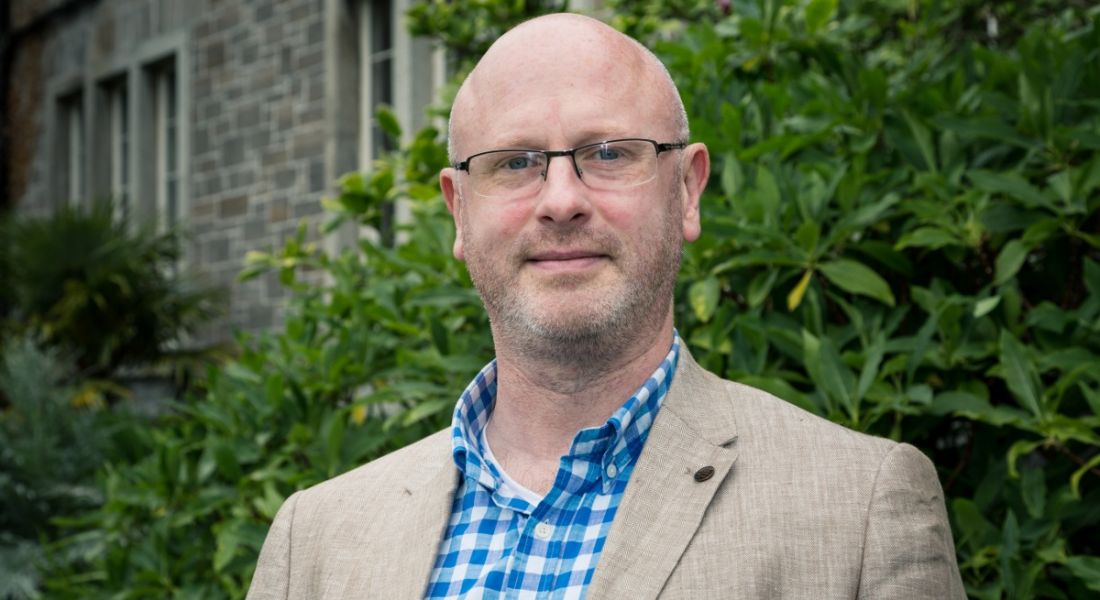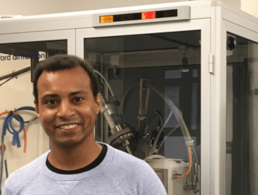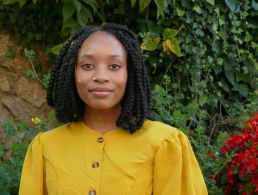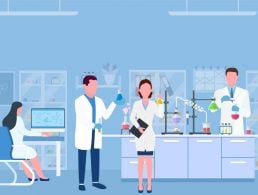Humankind advances are often a result of research carried out in institutions and organisations around the world. Here, we hear from a Dublin City University researcher trying to improve our lives.
Dr Ronan Murphy of Dublin City University (DCU) is leading a group of researchers working to uncover how a combination of genetics, diet and exercise can be used to manage chronic illness.
What is your role within DCU?
I’m currently deputy head of the School of Health and Human Performance, and a principal investigator with the Centre of Preventive Medicine. In addition, I hold the position of vice-chair for Epigenetic Technologies for the European COST action, EpiChemBio (epigenetics and chemical biology).
What steps led you to the role you have now?
I completed an honours degree in biochemistry in NUI Galway, followed by a PhD in cancer genetics with the Cell and Molecular Biology Group.
I commenced my research career as a clinical research scientist and core facilities director (molecular genetics) in the Centre for Cardiovascular Science at Royal College of Surgeons in Ireland, under the mentorship of Prof Desmond Fitzgerald.
There, I specialised in pharmacogenomics, focusing on the personalisation and stratification of clinical trials. I was a member of the team that established the first national DNA bio bank and pharmacogenomics company, Surgen. My work involved developing high-throughput genotyping assays specific for various clinical trials and the EU salmon genotyping project.
In 1998, I was fortunate to be awarded a prestigious postdoctoral fellowship from the Health Research Board to study the genetics of bleeding disorders, focusing on Glanzmann’s thrombasthenia, which led to the characterisation of a new compound heterozygote form of the disease.
In 2000, I was recruited to work in the laboratory of Prof Sanford Shattil, then editor-in-chief of the journal Blood. As a research fellow in Prof Shattil’s lab at The Scripps Research Institute (La Jolla, California), I studied megakaryocyte stem cell biology and platelet function using novel cellular and molecular genetic techniques. There, I discovered a new modulator of Rap1b activation and integrin (aIIbb3) signalling, CalDAG-GEF1. This effector has subsequently been shown to be a pivotal mediator in cancer, inflammation, atypical bleeding disorders and cardiovascular disease.
During this time, I also continued my scientific training at The Blood Research Institute in Milwaukee, and the Max Planck Institute in Dresden.
I returned to DCU in January 2004, to establish my own research group with funding from Science Foundation Ireland and the Health Research Board of Ireland.
Can you tell us about the research you’re currently working on?
I work in epigenetics, the dynamic changes that occur at the DNA, RNA and protein level in eukaryotes. Epigenetics is at the heart of gene regulation and determines which genes are activated or silenced. It is of great importance fundamentally and has many exciting translational aspects, including therapeutics, diagnostics, stem cell research, microbial pathway engineering and agriculture.
My group’s work at DCU focuses on the cellular, molecular and epigenetic aspects of chronic illness at the basic and translational levels, trying to understand how better to prevent, manage and treat such disorders using lifestyle medicine – exercise and nutrition – and also helping to develop and trial novel therapeutics.
The research involves applied and translational research, focusing on the development of novel cellular and molecular companion diagnostics and prognostics. We also develop organotypic models of human tissue for therapeutic evaluation at the clinical and preclinical stages. This work avoids the use of animal models for human research, is far more cost-effective, and is more relevant to human health and disease.
Our current research portfolio has expanded into the new area of cardiovascular epigenetics and the role of lifestyle on the cardiovascular compartment. Current projects in this field include working with the French (CNES) and European space agencies (ESA), in collaboration with my colleague Prof Marc-Antoine Custaud, on the effect of space flight on cardiovascular epigenetics, using platelets as a circulating biomarker.
‘Having the opportunity to make new discoveries and have a potential impact on health and society is a major motivator’
We also work very closely with a number of companies from the pharmaceutical and nutraceutical/cosmoceutical industries. We have a very successful collaboration with one Irish start-up company in particular – Oriel Sea Salt and Deep Sea Minerals – which has grown in success and productivity, with the assistance of Enterprise Ireland, at a very rapid, exponential rate.
At the collaborative European level, my group is involved in the very successful Horizon 2020 COST action, EpiChemBio. The key objective of the action is to establish the first European chemical biology network focused on epigenetics. This action will provide common ground for researchers from academia, research institutes, SMEs and multinational organisations. The fruitful interactions between these sectors will lead to the creation of new chemical and biological tools, as well as leads for translational applications that impact upon human society.
The action’s second objective is to increase awareness of epigenetics within the European scientific community. It will provide training for early-stage researchers, and emphasise involvement of COST inclusiveness-targeted countries.
What first stirred your interest in this area?
I’m lucky in that I have always had a keen interest in science from a very early age, especially in the biomedical arena. Growing up, and to this day, my family, teachers and mentors have always given me enormous support. My principal passion is in genetics, and this has now evolved into epigenetic, lifestyle, ageing well and preventive medicine. As the School of Health and Human Performance at DCU is a national leader in this field – with an international reputation – our group is ideally located.
I’m motivated by the fact that we are witnessing an explosion of chronic lifestyle and age-related illnesses. Poor lifestyle choices, such as inactivity and diet, are rapidly becoming a global pandemic, with a deleterious impact on many chronic illnesses such as cardiovascular disease, metabolic disorder, diabetes, Alzheimer’s disease and cancer. Understanding their pathophysiology is important for the development of future therapeutic interventions, stratification of clinical trials, and to change our current perception of engaging with cost-effective measures, such as lifestyle management.
The initiation and development of age-related chronic illnesses, such as cardiovascular disease (CVD), involves a complex interplay between oxidative stress, inflammatory stimuli, loss of haemostasis and homeostasis, and deregulated gene expression. The aetiology of a chronic illness phenotype such as CVD is modulated by non-modifiable and modifiable cardiovascular disease risk factors. The fact that the initiation and progression of CVD – and indeed the majority of chronic illnesses – is characterised by a lag time between onset and clinical manifestation provides a window of opportunity for the implementation of cost-effective intervention strategies to reduce the disease burden.
If there is such a thing, can you describe a typical day for you?
I’m glad to say no. It changes from day to day, and evolves with the research, needs and challenges. The one constant is undergraduate teaching and postgraduate training, which I enjoy. I’ve seen some amazingly talented students grow and develop, and it is a humbling experience, as many of them are far brighter and better than I ever was. Given the right supports, Irish science is in good hands with the next generations.
What skills and tools do you use on a daily basis?
At the interface between teaching, research and administration, I think communication and people skills are by far the most important. This is more difficult than it seems, and I’m far from perfect at it, but I make the effort.
I also think having an understanding and empathy for people goes a long way. I’m fortunate in that I’ve worked for and with many talented people, who have been a great example in good leadership and managerial skills.
What applications do you foresee for this research?
My research goes from deep ocean to space, from young to old, and from elite athlete to patient, and now even racehorses. By looking at extremes and variations of ‘normal’, we can learn enormous amounts about how the body works. We call this integrative human physiology – examining everything from gene to whole body, and how the environment (exercise, diet, stress and therapeutics) impacts on our health and how we age. This process is known as ‘epigenetic drift’, and may provide us with future targets for disease therapeutics, and ways to prevent and manage disease in the first place.
One pet project of major interest to me, and one that I think will pay dividends for Ireland, is the potential of our biomarine sector. With 90pc of Ireland under water, you can only imagine what wealth of potentially important bio-active and bio-functional products lie beneath the waves, which could be harvested in a sustainable and eco-friendly way. The economic and health potential there is immeasurable. Our group is ideally positioned to identify and characterise these, once isolated.
Are there any common misconceptions about this area of research?
I would not say that there is a misconception of what we do, but maybe an under-appreciation of the potential of our research. I think we as scientists poorly communicate this with the public, so the responsibility is with us.
That said, our department makes great efforts to relate what we do to the public and to engage the community. Our head of school, Prof Niall Moyna, does an excellent job in communicating with the public through the media, and many people are familiar with what we do because of his work on Operation Transformation, Doctor in the House and the programme he did with Tommy Bowe a few years ago.
Also, with the unsustainable costs associated with our current healthcare model, and with an ageing population, I think there is great opportunity for the government and funding agencies to invest in the future health of the Irish people through this type of research and development. Research has shown that for every €1 spent in this type of research, there is a future payback of approximately €7. The School of Health and Human Performance’s health intervention work, undertaken through the MedEx programme here at DCU – led by Dr Noel McCaffrey and Dr Brona Furlong – is currently being evaluated by the HSE.
When you first started work as a researcher, what were you most surprised to learn was important in the role?
It can be a long and frustrating road, so it is not for the faint-hearted. I think it is a vocation rather than a job. It takes dedication, determination and a lot of hard work. You also have to be able to take criticism and rejection on the chin, and forge your own path. People do not see the numerous failures and setbacks associated with research. But ultimately, when you do succeed and achieve something, it makes it all the more worthwhile and rewarding.
What do you enjoy most about your career in research?
As I mentioned, it varies from day to day, week to week, month to month and year to year. I never make a concrete plan, but keep an open mind, watch out for opportunities and try the less-travelled roads of research. Having the opportunity to make new discoveries and have a potential impact on health and society is also a major motivator.
All this would not be possible without friends and colleagues. I’ve been lucky to work with amazing, motivational and supportive people – students, colleagues and collaborators – which makes coming to work an added joy and makes the job possible.




